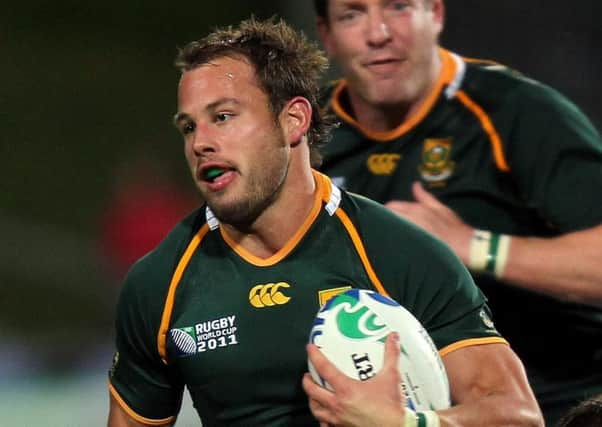Gareth Dyer's rugby column


A general theme since I began writing this column has been my frustration at the way our – generally overpaid – administrators run the game without any long-term vision as to how to make European rugby a self-sufficient talent factory that excels at future World Cups.
A few things have happened recently that has only served to harden my views that we continue to lose the thread “up north”.
Advertisement
Hide AdAdvertisement
Hide AdThe major difference in approach between the two hemispheres comes in player development.
One of New Zealand’s elite Super Rugby provinces is the Waikato Chiefs.
Back-to-back winners of the Super Rugby crown in 2012 and 2013, I was intrigued to read about their rebuilding plans for 2016 after a number of experienced players retired or left after last season.
It was suggested that they’d struggle to remain a force.
After all, how do you replace the likes of Sonny Bill Williams, Liam Messum, Hosea Gear, et al, who’ve departed?
Advertisement
Hide AdAdvertisement
Hide AdWell, in New Zealand you promote from your youth system, identify club talent from within your province that can step up and sign players surplus to requirements at other Kiwi provinces.
Go out and splurge on foreign players? Not a chance. After all, how would that approach strengthen New Zealand rugby?
Contrast that mind-set with the approach in Europe.
Let’s start in Wales. Recently a CEO of a leading PRO12 region bemoaned the fact that he couldn’t sign more foreign players. “Without them we will not be competitive” was his stark message.
This despite his squad already having Welsh senior and junior internationals in every position and a catchment area of proven distinction in providing high-class Welsh players.
Advertisement
Hide AdAdvertisement
Hide AdMy question would be what that CEO thinks of the quality of the coaching being delivered within his region if he has to think so short term.
Let’s move to another example and Scotland – a country that has struggled to adapt since the game went professional 20 years ago.
Last month a leading SRU figure highlighted that its Project Player Program – a recruitment process that identifies willing Southern Hemisphere players who cannot get picked for their own countries but happy to come and live in Scotland for three years and qualify to play for their adopted country – should be expanded as its influence is improving the strength of that country’s national team.
The costs of the PPP is unknown but whatever the cost it should balanced against the long-term cost of abandoning Borders rugby – one of Scottish rugby’s historical heartlands and talent production lines.
Advertisement
Hide AdAdvertisement
Hide AdOnly two “Borderers” made the 2016 Scottish Six Nations squad. The PPP contingent is close to double figures.
The number of potential future home-grown players and supporters lost by a lack of engagement is harder to quantify.
Meanwhile, in France we had the unedifying spectacle this week of the French national coach wishing to select a Samoan-born, Kiwi-educated winger who had previously played international sevens for New Zealand.
It used to be said that France could pick five teams of equal strength to compete in the Six Nations, given the depth and breadth of the game across the channel.
Advertisement
Hide AdAdvertisement
Hide AdNow it must be difficult to identify who might be eligible for the national team in certain positions when more than half of every Top 14 squad is made up of non-qualified players.
Add in that certain French clubs are talking about having Pacific Island academies – so that they don’t miss out on any future talent in Fiji, Samoa and Tonga – and you wonder if at the current rate there will be enough French players to form a national team in a few years.
In England, Worcester Warriors last week signed former South Africa scrum-half Francois Hougaard. Nothing out of the blue there perhaps.
Warriors’ director of rugby Dean Ryan waxed lyrical, calling the signing a statement of intent of where they are heading as a club.
Advertisement
Hide AdAdvertisement
Hide AdAn interesting viewpoint when you consider they already have four scrum-halves, all of whom are English-qualified, including the current England Under-20s incumbent.
Not much game-time coming their way between now and May methinks.
Ah, but these might be isolated incidents that distort the true picture.
The thing is I could have picked any number of similar statements, signings or short-term ideas from right across the European game to highlight the point.
Clearly until there is a unifying structure and approach in European rugby that concentrates on developing from within, we will continue to fall behind in the bigger picture.